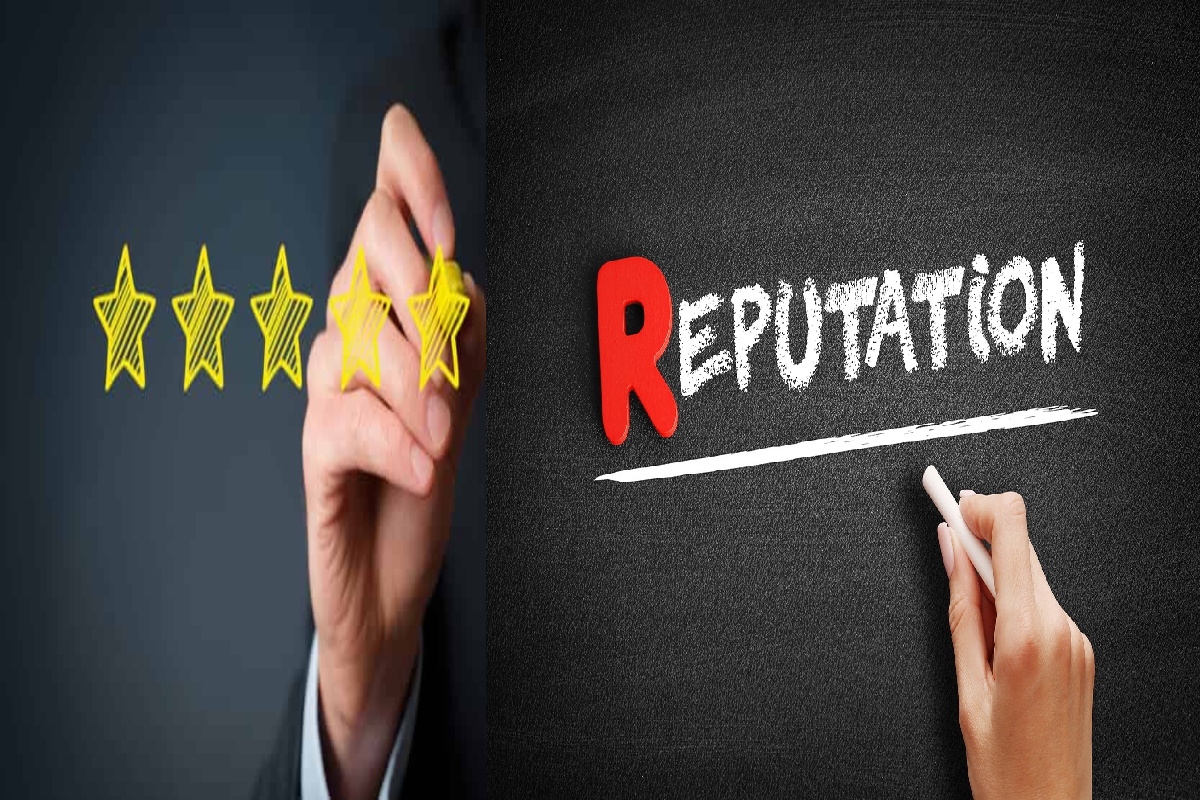Table of Contents
Reputation -Definition
Reputation is the estimation in which a person or thing is held, especially by the public or the public generally; repute: a man of good reputation. Favourable Repute. Reputation is the general belief or opinion that other people have about you. If you are considered responsible and kind, you have a good reputation.
Reputation comes from the Latin word reputation, which means “thought.” It’s how people consider, or label, you — good or bad. The noun reputation can also mean “being known for having a specific skill or characteristic.” For instance, if you are standing for snow shovelling, your phone will quickly be ringing off the hook with your lazy neighbours calling.
Sound Name: to ruin one’s reputation by misconduct. To build up a reputation, a favourable and publicly recognized name stands for merit, achievement, reliability, etc. The estimation or character of being, having, having done, etc.,
Something specified: He has the standing of being a shrewd businessman.
The Current State of Affairs
Regulators, industry groups, advisors, and individual companies have developed detailed guidelines over the years for evaluating and supervising risks in a wide range of areas, from product prices to control systems to supply chains to political uncertainty to natural disasters. However, it has been ignored in the absence of agreement on defining and measuring reputational risk.
Determinants of Reputational Risk
Three things determine the extent to which a company is unprotected from reputational risk. The first is whether its reputation exceeds its true character. The second is how many external beliefs and prospects change, which can widen or (less likely) narrow this gap. The third is the internal organization’s quality, which can also affect the gap.
Reputation-Reality Gap.
Effectively managing reputational risk begins with knowing that reputation is a substance of perception. A company’s overall reputation is a purpose of its reputation amongst its numerous stakeholders in specific categories (product quality, corporate domination, employee relations, customer service, intellectual capital, financial performance, handling of conservation and social issues). A strong positive reputation among stakeholders across numerous groups will result in a solid optimistic reputation for the business overall.
Behaviours in Reputation
Reputation is distinct from the actual appeal or behaviour of the company and maybe better or worse. When the importance of a company is more favourable than its virtual reality, this gap poses an extensive risk. Eventually, the disappointment of a firm to live up to its billing will be exposed, and its reputation will weaken until it more closely competitions the reality. BP seems to be knowledge this the hard way. The energy giant has striven to portray itself as an accountable corporation that cares about the situation. Its efforts have included its all-embracing “Beyond Petroleum” publicity campaign and a multibillion-dollar initiative to expand its alternative-energy commercial.
Character is Like a Tree and Reputation Like its Shadow
Organizations that meet the prospects of their various stakeholders may not get full credit for doing so. This often occurs when a company’s reputation sign by unfair attacks from special interest groups or inaccurate reporting by the media. It can also happen when a company has made genuine strides to address a problem that has hurt its reputation but can’t convince stakeholders that its progress is real. For example, Chrysler, Ford, and General Motors improved their cars so much that the quality gap between them and the vehicles made by Japanese businesses had primarily closed by 2001. Yet, much to the prevention of the Big Three, consumers remain sceptical.
Undeserved poor or mediocre standings can be maddening. The attraction is to respond to them with resignation and conclude: “No matter what we do, people won’t like us, so why bother?” The reason executives should bother—through intensified efforts to improve reporting and communications—is that their fiduciary responsibility to close such reputation-reality gaps is as outstanding as their commitment to improve actual performance. Both things drive value creation for shareholders.
Changing Beliefs and Expectations
Stakeholders’ changing beliefs and expectations are another major determinant of reputational risk. When expectations shift and the company’s character stays the same, the reputation-reality gap widens and risks increase.
There are many examples of once-acceptable practices that stakeholders no longer considered satisfactory or ethical. Until the 1990s, hostile overthrows in Japan were almost unheard of—but that was partly due to the cross-holding of shares among the elite groups of businesses known as keiretsu, a practice that destabilized the power of other shareholders.
With the flagging of the keiretsu structure during the past ten to 15 years, shareholder rights and overthrows have been on the rise. In the United States, once-acceptable practices now careful improper include brokerage firms using their research functions to sell investment-banking deals; insurance sponsors’ incentive payments to brokers, which caused brokers to price and structure attention to serve underwriters’ interests rather than customers’; the selection of CEOs’ friends to boards as “independent directors”; earnings guidance; and flattening of earnings.
Sometimes norms evolve, as did the now widespread expectation in most developed countries that companies should pollute minimally (if at all). A change in the behaviour or policies of a leading company can cause stakeholders’ expectations to shift quite rapidly. Which can endanger the reputations of firms that adhere to old standards.
For example, the “imagination” initiative launched by General Electric in 2005 has the potential to raise the bar for other companies. It committed GE to double its R&D investment in developing cleaner technologies, doubling the income from products and services that have essential and measurable conservation benefits, and reducing GE’s greenhouse emissions.
Conclusion
Of course, different stakeholders’ prospects can diverge dramatically, making determining norms difficult. When GlaxoSmithKline the growth of anti-retroviral drugs to combat AIDS. Its reputation for showing cutting-edge research and product growth reinforce shareholders, please.
Also Read: Cottage core- Definition, Popular, Uses, And More


